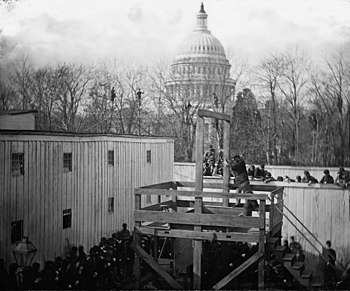
Back Siegerjustiz German Justicia del vencedor Spanish Justice du vainqueur French צדק של מנצחים HE Keadilan bagi pemenang ID 勝者の裁き Japanese Justiça dos vencedores Portuguese

Victor's justice is a term which is used in reference to a distorted application of justice to the defeated party by the victorious party after an armed conflict. Victor's justice generally involves the excessive or unjustified punishment of defeated parties and the light punishment of or clemency for offenses which have been committed by victors. Victors' justice can be used in reference to manifestations of a difference in rules which can amount to hypocrisy and revenge or retributive justice leading to injustice. Victors' justice may also refer to a misrepresentation of historical recording of the events and actions of the losing party throughout or preceding the conflict.[1]
The English term "victors' justice" was first used by Richard Minear in his 1971 account of the International Military Tribunal for the Far East, and is typically (but not always) applied to the aftermath of warfare.[2] It may be a loan translation of synonymous German Siegerjustiz, which is attested since at least the 1960s.[3] The closely related term Vae victis behaviour is where a victor unilaterally changes the agreed treaties or their interpretations and is seen as a form of victor's justice.
- ^ Schabas, William (Spring 2010). "Victor's Justice: Selecting 'Situations' at the International Criminal Court, 43 J. Marshall L. Rev. 535 (2010)". UIC Law Review. 43 (3): 535.
- ^ Minear, Richard (1971). Victors' justice: the Tokyo war crimes trial. Princeton NJ: Princeton University Press.
- ^ "DWDS – Digitales Wörterbuch der deutschen Sprache".